Cork woman shares strategies for autistic adults in new book
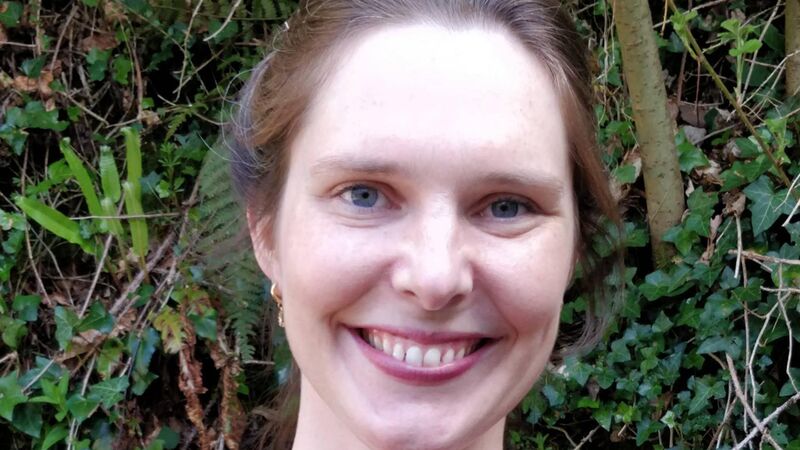
Niamh Garvey, who has published her first book, ‘Looking After Your Autistic Self’.
MOTHER of three Niamh Garvey, a qualified nurse from Blarney, has published her first book; Looking After Your Autistic Self; A Personalised Self-Care Approach to managing your Sensory and Emotional Well-Being’.
“It is my first published book of non-fiction” says Niamh, who also enjoys writing for children.
“I’ve been writing for years, and I’m very excited to be published now. Non-fiction is a new direction for me, and I enjoyed writing the book. I spent hours on it. I used to set alarms to remind me to eat or drink! Four hours would pass, and I’d say ‘Oh my God!’ But that’s me! Sometimes it’s a blessing to be able to hyper-focus. It’s a real strength.”
Niamh was diagnosed with autism in 2020 when she was aged 34.
“Being an adult is hard with adult challenges and responsibilities,” she says.
“Add autism into the mix, and the challenges become a lot more than just a juggle of responsibilities.
“Autism adds many layers of challenges, from social interaction differences to organisation difficulties, from communication, misinterpretations to sensory overwhelm.”
Niamh still lives in Cork, where she was born in 1986.
“I still live in a house surrounded by trees and wildlife, with my husband and my three daughters. I worked for many years as a nurse, mostly in cardiac and intensive care, but I stopped working when my second child was two years old,” says Niamh.
“I did some part-time nursing but had to fully stop when I began to experience physical disability.”
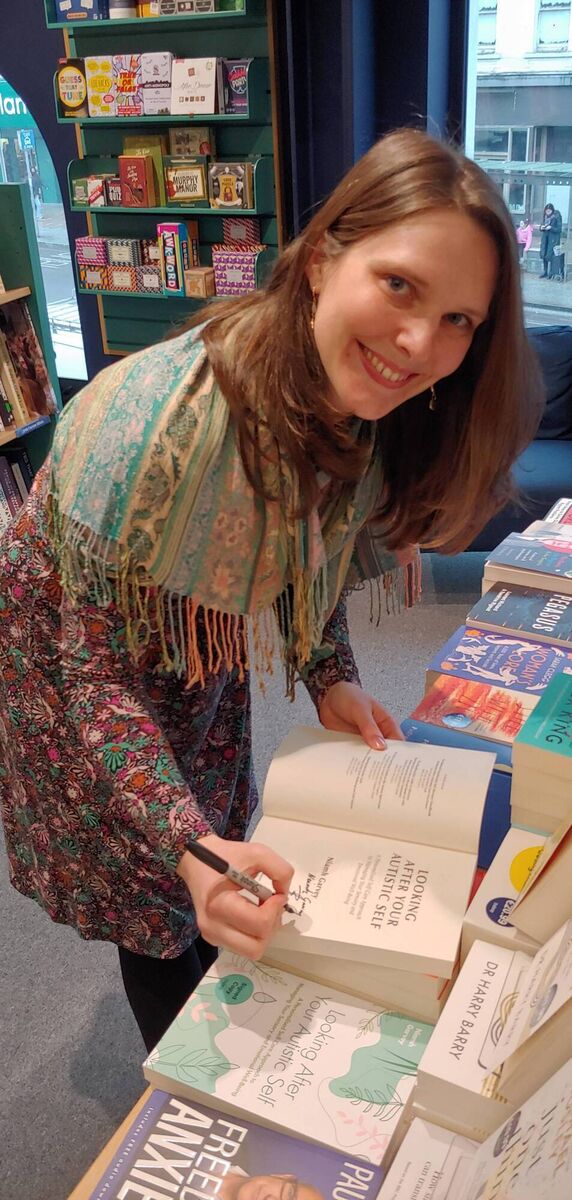
Being autistic affects Niamh more now as an adult.
“In many ways being autistic affects me more now than it did as a child,” says Niamh.
“As a child, I was often quiet, happier sitting in the corner reading rather than joining in with my peers.
“As an adult, it’s rarely appropriate to sit quietly in a corner reading. There are so many social situations that demand my presence and social involvement, especially as a parent, and so the amount of social demands on me has increased. Tasks I used to find easy have now become harder,” says Niamh.
“And my sensory difficulties have become much more challenging. I can no longer tolerate certain fabrics or noises that I used to tolerate.
“I can no longer socialise as much as I did in my teenage years. It takes a lot more conscious effort to look after my autistic self. I know I am not alone in this,” says Niamh.
“I have read many accounts of other autistic adults feeling more overwhelmed as they age. This is why we need strategies and creative solutions to help us navigate being an autistic adult. Not just to survive adulthood, but to thrive in it.
“I no longer try to mask my autism; I now work to support my autism.”
Niamh developed strategies to care for her autistic self which she discusses in the book.
She has many passions and interests, including creative-writing, and reading classic literature.
“I also love reading and learning about human psychology and the mind, and pretty much all things to do with health, wellbeing and autism.”
When did Niamh’s journey with autism begin?
“My autism awareness journey began with my children, as is so often the case for autistic adults,” says Niamh.
“I knew relatively little about autism until one of my daughters was diagnosed as autistic.”
Niamh wanted to know everything about this new subject.
“So I enrolled in a two-year Autism Studies Diploma in UCC. As I sat through the fascinating lectures, it slowly dawned on me that I was autistic myself; so I sought out a professional assessment.”
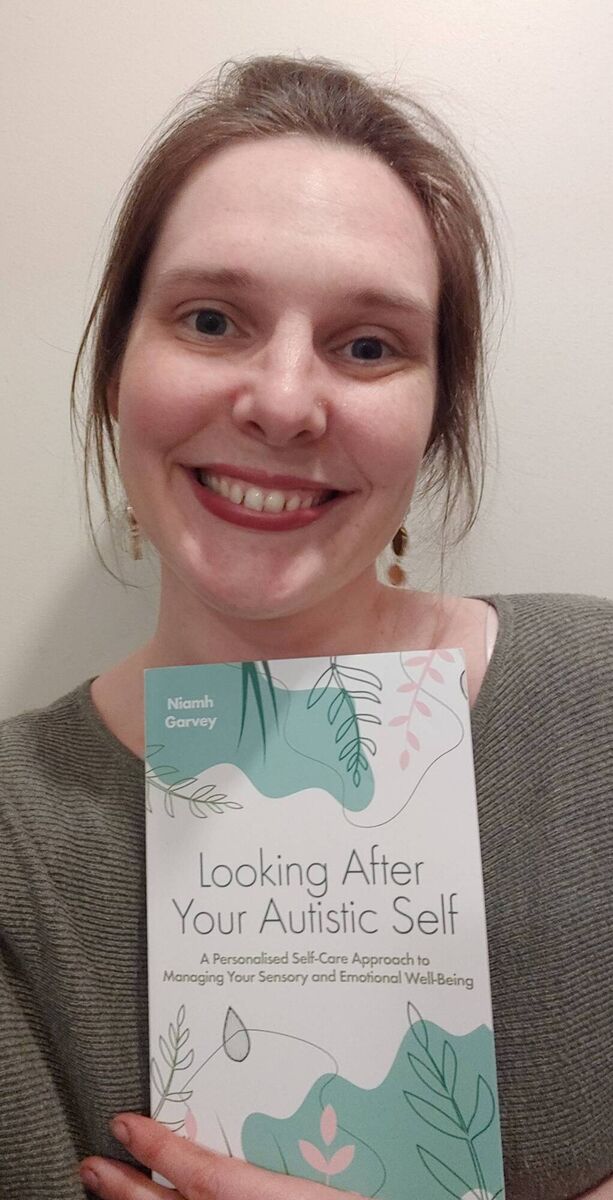
Things began to make more sense.
“After my diagnosis, I was relieved to realise that I could now dissect many of my past experiences and understand how they were shaped by my autism,” says Niamh.
“I began to understand why I lost friends, why I could never eat lunch in the canteen at school, why I often got on more easily with boys, why I only felt calm in university when I was alone in the library, why I couldn’t go out partying every night like the other girls in nursing college, and why I found the transition to motherhood so hard.
“Most importantly, it allowed me to understand and get on top of the anxiety that had followed me through my life, like a constant shadow.”
Niamh had often felt like a failure as an adult.
“I wondered why I struggled with things that other adults found simple. Even the thought of picking up the phone to renew my car insurance made my gut clench, and I could experience severe nausea,” says Niamh.
“In my experience, there is a misconception that autistic children grow into ‘less autistic adults’. I believe this stems from our ability, as autistic adults to adapt our behaviour to ‘stand out less’, and to ‘fit in more’. We learn how to hide our differences and hide our overwhelm,” says Niamh.
“But this takes its toll on us, and can actually increase our levels of stress.”
Niamh didn’t feel like a failure after receiving her diagnosis.
“Once I got my diagnosis, this feeling of failure disappeared,” she says.
“I now see that being an autistic adult is not the same as being a non-autistic adult and I just needed to learn a different approach to being an adult. I needed knowledge. Knowledge is power, and thankfully, knowledge can be learnt.” She asked for support.
“I regularly ask for help when I am developing my supportive strategies, and I feel no shame,” says Niamh.
“I think that by asking for help, I am being strong, not weak.”
Niamh always asked the questions.
“I have always been a questioner - I was that annoying student in school who never stopped asking questions,” says Niamh.
“I wanted details and facts in order to process information, and thus caused other students to eye-roll and sigh. Over the years, I have asked friends, family, lecturers, colleagues, therapists, and the online community what they do to manage tasks in their adult life. I ask about everything, from how to prepare for a job interview to how to change my house insurance, to how to manage the endless laundry piles in a family of five.
“I became known, in my job as a nurse, for asking questions so much so that other people often came to me to ask questions for them, because they knew I was confident enough to ask anything.”
Her tendency to question, along with her passion for the subject of autism, led Niamh to write this book.
What about the language around autism?
“The language around autism is changing,” says Niamh. “Many autistic people will feel offended if you say they have ASD or are ‘on the spectrum’.
“This is called first-person language and has been criticised for suggesting that one’s autism is an external thing, or an appendage, rather than an integral part of one’s identity.
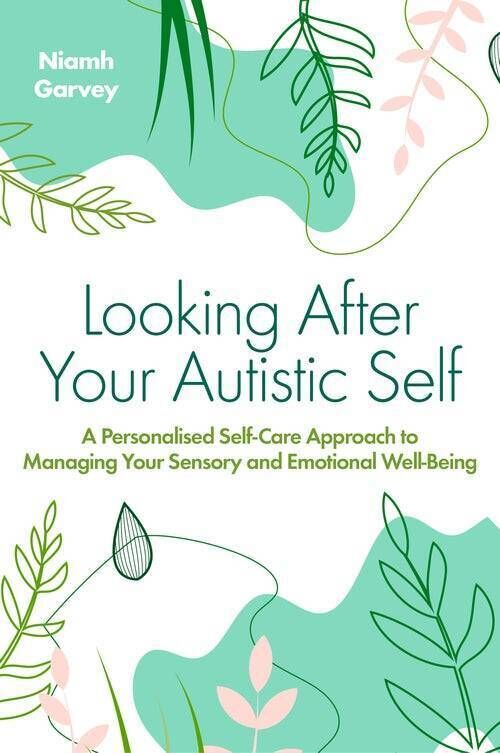
“Most, but not all, within the autistic community agree that it is desirable to use identity-first language when discussing an autistic person,” explains Niamh.
“To use identity first-language, one says that the person ‘is autistic’, and is called an ‘autistic person’ rather than a ‘person with autism’.
Looking After Your Autistic Self is all about evidence based on information.
“When I decided to write the book, I felt I had nothing to lose,” says Niamh.
“It flowed out easily. I used my own experiences to create strategies focusing on sensory and emotional well-being. I did not carry out research myself, I read and analysed published research."
“A lot more adults are being diagnosed with autism and I saw a gap in books for strategies; there are many books for parents, but not for adults. It is difficult to be autistic in society,” says Niamh.
“Society is not set up for people with autism. I suggest simple things in the book to help yourself. The book is essentially a self-personalised self-car approach to managing your sensory and emotional well-being.”
The book is divided into three parts.
“Each part is divided into chapters,” Niamh explains.
“Each chapter will give a brief explanation of the chapter topic and how it affects autistic adults, followed by strategies and support systems that can be used to help.”
The book is detailed.
“There is a glossary at the end of the book so you can easily find the meaning of words, phrases, and abbreviations used in the book,” says Niamh.
“Along with including my research studies, I also provide many anecdotes and examples from my own life, as I believe more can be learnt when facts are mixed with real-life experiences.
“I hope that by sharing these anecdotes readers will be able to identify (or realise that they do not identify) with some of my own experiences.”
Niamh is proud of her publication. And family life is good.
“Writing the book was a joy,” she says.
“Myself, my husband, Cathal, and our three daughters, are a neurodiverse family living in a quirky home full of hammocks, swings and all sorts of peculiar oddities that bring calm and joy to our daily life.”
Niamh is on a mission.
““I want to share what I have learned, in the hope that other autistic adults may find some helpful tips and strategies that improve their adult life,” she says.
“Autism is challenging.
“I am trying to help people support themselves.”
Looking After Your Autistic Self, by Niamh Garvey, is available now in all good bookshops.

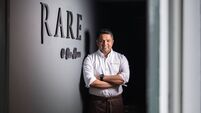
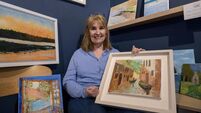
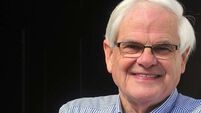



 App?
App?


